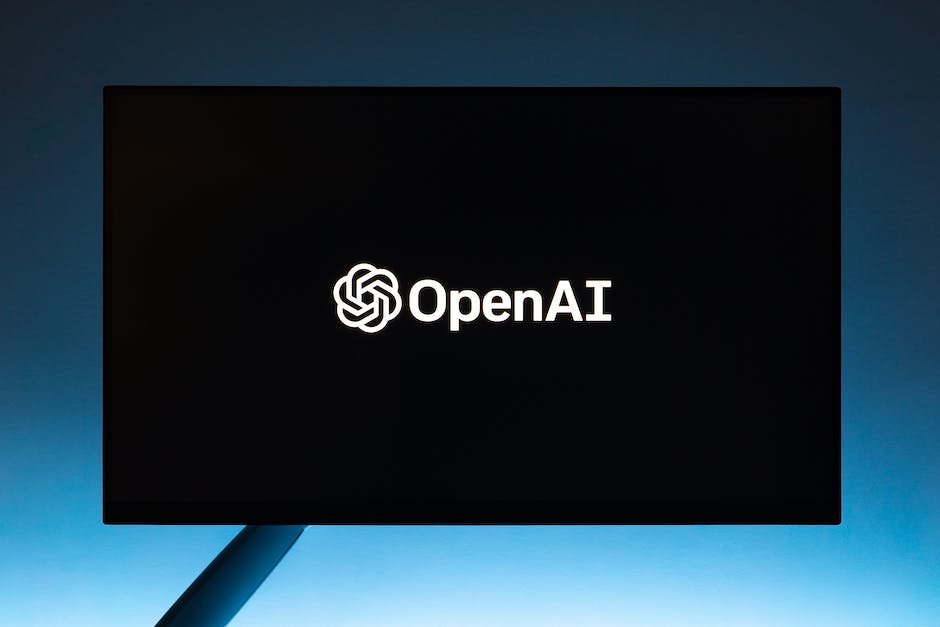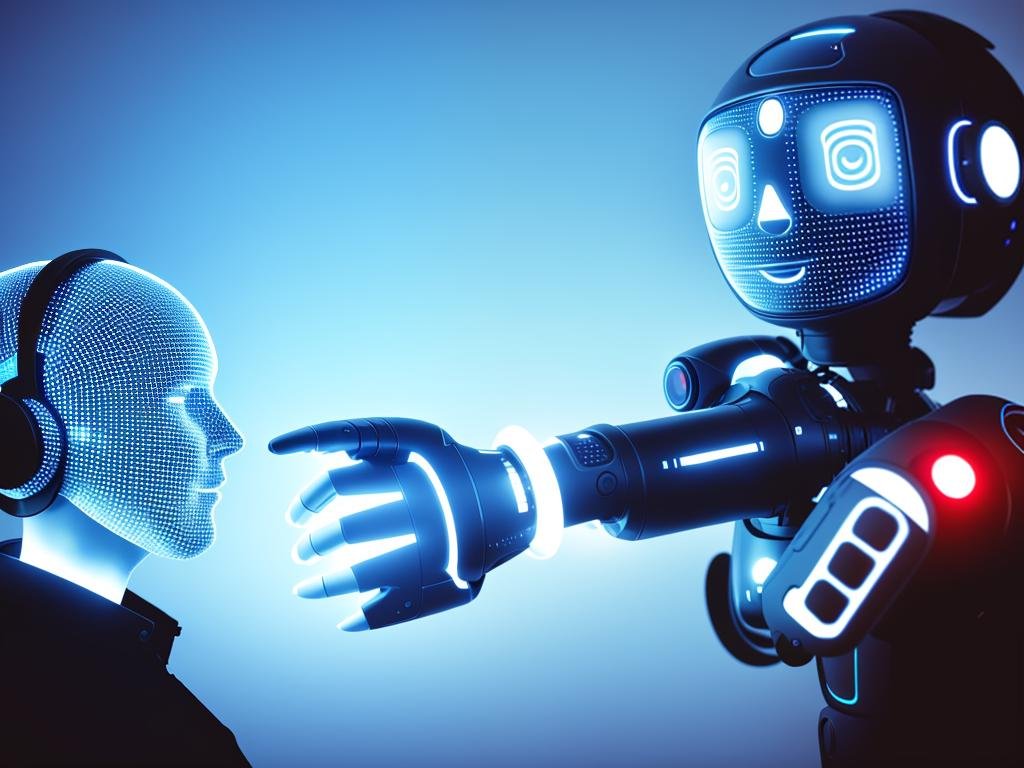In an era that’s increasingly defined by automation and digital sophistication, artificial intelligence (AI) and chatbots have emerged as significant parts of the technological landscape. These transformative technologies are revolutionizing sectors from retail and healthcare to banking and beyond, enhancing operations and stimulating new possibilities for growth. This essay serves as an in-depth exploration of AI and chatbots, shedding light on their functionality, importance, and the implications they carry for our future. Through a thoughtful examination of their current utilization and an intriguing look into what lies ahead, a comprehensive understanding of these digital marvels will be established.
Understanding AI and Chatbots
Understanding AI and Chatbots
Artificial Intelligence (AI) is a branch of computer science that deals with the synthesis and development of computer systems capable of performing tasks typically requiring human intellect. These tasks include (but are not restricted to) understanding natural language, recognizing patterns, learning from experience, making informed decisions, and even demonstrating emotional intelligence. AI finds extensive application in many aspects of our daily lives: from suggesting what movie you might enjoy next on your streaming platform to improved and fast diagnosis in healthcare.
Chatbots, a fast-evolving application of AI, automate interactions between people and services, enhancing customer experience and operational efficiency. By simulating human conversation through voice commands or text chats, chatbots have revolutionized the way brands stay in contact with their customers. They can answer customer queries, provide detailed product descriptions, handle bookings, and much more. Chatbots are now commonplace in business environments and are streamlined into operations and customer service to enhance business processes and foster customer loyalty. Their importance cannot be underscored enough, especially in the digital age where prompt and precise communication is key to customer satisfaction. Their increasing sophistication means they can learn and improve over time, making them an invaluable addition to any digital strategy.
Understanding Chatbots & AI in Modern Day Life
In the rapidly growing digital era, chatbots and artificial intelligence (AI) hold a significant role. From engaging with voice-activated assistants like Amazon’s Alexa to play your favorite tunes, to connecting with banking website bots for account-related inquiries, the uses of chatbots and AI have grown significantly. Both these technological marvels serve its users 24/7, ensuring speedy responses and giving a personal touch to interactions, thus elevating the overall user experience. In certain areas, particularly health care, they serve effectively in reminding patients about their medication intake and checking symptoms, thus becoming an integral part of personal health management systems. Given their myriad applications, chatbots and AI have become integral in our daily lives.

Current Uses of AI and Chatbots
The Impact of AI and Chatbots in the Retail Sector
With the retail industry witnessing a surge in online shopping, AI and chatbots have gained significant prominence. They help in personalizing shopping experiences and have formed the backbone of quicker customer service. They work on algorithms that analyze consumer behavior, including shopping patterns and previous purchase history, subsequently offering tailored product suggestions. Moreover, chatbots have taken over and automated customer interaction scenarios, freeing up manpower while ensuring real-time support. They address frequent customer inquiries regarding order status, product information, return rules and so on. Owing to their key contributions, both AI and chatbots have immensely enhanced efficiency and levels of customer satisfaction in the retail sector.
Transforming Healthcare with AI and Chatbots
In the healthcare industry, AI analyzes vast amounts of patient data to provide predictive insights and help diagnose diseases. AI algorithms assist in designing treatment plans and predicting patient outcomes, thus improving the overall quality of care. On the other hand, chatbots serve as personal health assistants. They answer health-related queries, send medication reminders, book appointments, and provide information on treatment procedures. These digital assistants offer 24/7 service, leading to increased access to healthcare information and reduced burden on healthcare providers.
Revolutionizing the banking sector with AI and Chatbots
Developments in Artificial Intelligence and chatbot technologies are altering the landscape of the banking sector. Banks are now leveraging AI for numerous tasks such as assessing risks, detecting fraud, constructing investment models, and approving loans. It greatly enhances decision-making and security by analyzing extensive financial data and monitoring transactions. On the customer service front, chatbots are taking the lead, promptly answering customer inquiries regarding transactions, account balances, and loan eligibility. There are even advanced chatbots providing financial advice and investment recommendations with immediate, precise interactions that surpass the constraints of traditional banking hours, thereby elevating the convenience and operating efficiency of banking institutions.

The Future of AI and Chatbots
Tackling the advancements and ramifications of AI and Chatbots
The rise of the digital era has underscored the expanding capabilities and potentials of AI and chatbots. Their human-like abilities to identify patterns, make decisions, and learn from experiences, thanks to machine learning and predictive analytics, have created a stir in fields like online customer service and healthcare and not just in businesses. The benefits of instantaneous responses, 24/7 availability, and improved effectiveness are seen by both companies and their clients.
Notwithstanding, these advancements carry likely drawbacks and hurdles. Increased data privacy and security issues crop up as AI and chatbots adapt and learn more. Concerns about these technologies invading the privacy of individuals and replacing jobs, thereby potentially amplifying unemployment rates, are also prevalent. Addressing these challenges calls for our society to ensure transparency, establish appropriate regulations, and prioritize the reskilling of workers.
Envisioning the Future: AI and Chatbots
In the not-too-distant future, AI and chatbots are set to rise to astounding heights. Experts foresee AI breaching the confines of artificial general intelligence (AGI), a feat that allows it to comprehend, learn, and apply any intellectual task like a human. On a similar note, chatbots are on track to acquiring enhanced cognitive abilities. An exciting upcoming evolution is the integration of emotional intelligence into AI. This will equip chatbots to grasp and mimic human emotions for a more custom-tailored and empathetic reaction. Although these prospects bring a mix of challenges and opportunities, having a deeper knowledge allows us to harness this technology to better the world while keeping potential risks in check.

Ethical Considerations in AI and Chatbot Deployment
Walking the Ethical Tightrope: Privacy Dilemmas and Job Displacement Worries
The expansion and evolution of AI and chatbots have significantly influenced various sectors like education, healthcare, and finance. Nevertheless, their widespread use has surfaced multiple ethical dilemmas. A predominant issue is user privacy. AI systems typically rely on substantial data volumes for optimal operation, with chatbots particularly dependent on learning from prior interactions for response enhancement. Although this might enhance service efficiency, it also poses questions about the usage and protection of personal data.
The fear of job losses stemming from automation is another important ethical aspect. As AI and chatbots evolve in sophistication, they can potentially substitute various roles, spanning from customer service to healthcare diagnostics. However, it’s also crucial to note the creation of new job sectors as a counterbalancing force. We must evaluate these contrasting factors in assessing AI and chatbots’ potential impact.
Biases in AI Programming
Biases in AI programming is an emerging issue, shedding light on the ethical implications of AI and chatbot design and deployment. Chatbots often learn from human behaviors and conversations, which may include unconscious biases. These can then be reflected in how the chatbots interact with users, perpetuating existing biases and potentially leading to discriminatory practices. To mitigate this risk, it’s crucial that AI developers are aware of this potential bias and strive for fairness, accountability, and transparency in AI and chatbot design.

Photo by matthewhenry on Unsplash
While we continue to marvel at the strides being made in the domain of AI and chatbots, it is crucial that we remain mindful about the ethical complexities that they present alongside their advantages. Privacy concerns, the fear of job losses, and the propagation of pre-existing biases through AI programming are real challenges that require attention and regulation. By striking a balance between leveraging technology for growth and preserving ethical standards, we can navigate the digital landscape safely and responsibly. As we move into an increasingly automated future, let’s engage with AI and chatbots in a manner that honors our collective need for innovation without compromising on our shared values and principles.


